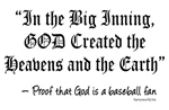In the year of 2017, Van Lingle Mungo is best remembered as the name of an old school baseball song written by David Frishberg. The song takes the listener back to the 1930's and 1940's and consists of a series of monotone verses that are just simply baseball players' names. Out of the 37 players that's names are mentioned in the song, only former major league infielder Eddie Basinski is still alive today. The song was written in 1969 and became Mungo's calling until his death in 1985.
If I said that Van Lingle Mungo had as good a fastball and maybe a better repertoire of pitches than any of the previously mentioned pitchers, the first thing you would do is go to baseball reference and look at his career stats. His career stats were not that impressive. From the years of 1931-1945, Mungo won 120 games and lost 115, though he did pitch to a respectable 3.47 earned run average for his career. And if you wanted to give him a little more credit, the majority of his career time the Dodgers ran parallel to one of the worst stretches in franchise history.
Bob Feller burst on the scene as a teenager in the late 1930's with the Indians. Feller would go on to pitch 18 seasons in the big leagues, all in Cleveland, win 266 games, finish his career over 100 games above .500, and win 20 games six different times. Van Mungo had a fastball that was as good as Bob Feller's. If the media was as dominant as it is right now, perhaps the young Feller would have been spoken about as the next Mungo. Mungo's first five seasons helped make a name for him as the ace of the Dodgers staff. He made the All Star team four times, winning 18 games twice and 16 games another two times. When it came time for the Dodgers to have a better team around him, it was certain the team had their ace starter to build around.
Van Mungo was at his best, results wise, while the Dodgers were bad. Mungo's first taste of the big leagues was in 1931 under Hall of Fame manager Wilbert Robinson, the latter in the final year of an 18 year run leading the "Robins". From 1932 to 1939, Mungo and the Dodgers would have four managers- Max Carey, Casey Stengel, Burleigh Grimes, and Leo Durocher. And it was not until Durocher put his stamp on the team that the Dodgers gained respectability.
The sad part of the baseball career of Mungo was the fact that he still had a lot left in the late 1930's and early 1940's. How great would the starting pitching staff look in 1941 if Mungo had been there with Kirby Higbe and Whit Wyatt, both 20 game winners that season? Not to mention, Hugh Casey and Johnny Allen dominating the late innings in one of the first known examples of a shutdown bullpen. Mungo's problem was himself. He was always a popular player, a "celebrity", so to speak. Largely because of his drinking and his temper, he could never get himself focused on pitching. This led to injuries, inconsistencies, and his managers unanimously declaring they could not trust him in a big spot. From the years of 1938-1942 (In 1942 Mungo was pitching for the New York Giants), he managed a total of 261 innings pitched a season, an average of just 50 a season. He did have a shoulder operation that cost him the second half of the 1940 season. By the early part of the 1941 season, though, Mungo had finally wore out his welcome with the Dodgers.
The details of what led to Mungo's top heavy career are chronicled by SABR, wikipedia, as well as the baseball reference bullpen. I want to focus on the advantage he had and the gift he may very well have wasted. From 1935-1937, he had the highest strikeout rate (per nine innings) in the National League. He had a demeanor on the mound that was very similar to what baseball would later see in Drysdale and Bob Gibson in the 1960's. A demeanor that allowed Feller to be so successful.
There is no doubt the Dodgers would have won the 1941 World Series had Mungo been at his best. He had the arm, but mentally was not focused enough on baseball to make that happen. Looking back at what Feller accomplished, there were definitely similarities to the kind of stuff Mungo had. Feller had a determination that Mungo did not have. Maybe it was because of Bob's service to his country in World War II. Perhaps it made him more of a competitor than Mungo. Feller clearly wanted it more.
I would have to guess that Van Lingle Mungo was disappointed in the results of his baseball career as a whole. He did have a solid season in 1945 with the Giants, finishing with 14 wins, but once again was his own enemy the following spring, culminating with the end of his major league baseball career. Though he was involved in many successful business ventures throughout his post baseball life, his baseball career is filled with a lot of "what if?" Maybe not at the level of future pitching sensations like Steve Dalkowski, David Clyde, and Brien Taylor, but it certainly stands to think of how great Mungo could have been. Drysdale, Grimes, and Vance all had similar stuff to what Mungo brought to the table. The other three are in the Hall of Fame because they had it between the ears and never let their fame and arrogance get in the way of their success on the mound. This is the reason Mungo will be more remembered for his place in a song than what he did on the mound.

 RSS Feed
RSS Feed
